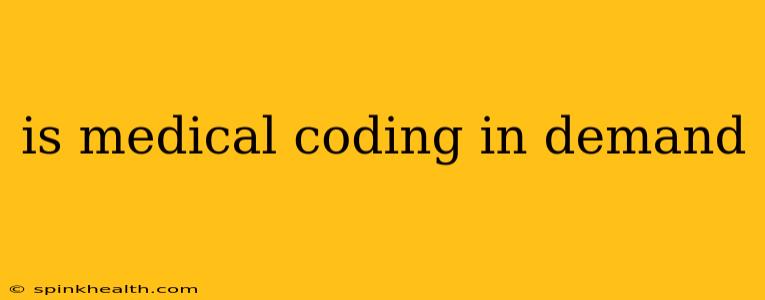Is Medical Coding in Demand? A Look into the Future of Healthcare Careers
The bustling hospital hallway hummed with activity. Dr. Ramirez, a seasoned cardiologist, scribbled furiously on a chart, documenting a patient's successful procedure. Across the hall, Maria, a medical coder, meticulously translated that doctor's notes into the standardized codes that insurance companies use to process payments. This seemingly quiet process is crucial – and it's Maria’s expertise that keeps the healthcare system running smoothly. So, is medical coding in demand? The short answer is a resounding yes, but let's delve deeper.
This isn't just about translating medical jargon into numbers; it's about the very lifeblood of the healthcare industry. Without accurate coding, hospitals and clinics struggle to get reimbursed, impacting their ability to provide care. As healthcare continues to evolve, the demand for skilled medical coders remains strong and shows no signs of slowing down.
What is the Job Outlook for Medical Coders?
The Bureau of Labor Statistics projects significant growth in the medical coding and billing specialist field. This growth is fueled by several factors:
- Aging Population: As the population ages, the demand for healthcare services increases exponentially, leading to a surge in medical records that need coding.
- Technological Advancements: While technology automates some tasks, it also creates more complex data that requires skilled coders to interpret and translate accurately. Think of the vast amount of information generated by electronic health records (EHRs).
- Increased Regulations: The healthcare industry is heavily regulated, with strict guidelines on coding accuracy. This necessitates a workforce of trained professionals who can navigate these complexities.
- Healthcare Reform: Ongoing healthcare reforms and changes in insurance coverage continue to impact billing and coding practices, creating a consistent need for professionals who can adapt and stay current.
What Skills Do Medical Coders Need?
Beyond the technical skills, several other attributes contribute to a successful medical coding career:
- Attention to Detail: Accuracy is paramount; a single misplaced code can have significant financial repercussions.
- Analytical Skills: Coders need to be able to analyze medical records, identify relevant diagnoses and procedures, and choose the correct codes.
- Knowledge of Medical Terminology: A strong understanding of medical terminology is essential for accurate coding.
- Technical Proficiency: Familiarity with coding software and electronic health record systems is crucial.
- Problem-Solving Abilities: Coders often encounter ambiguous or incomplete information; the ability to solve problems and find solutions is critical.
What are the Different Types of Medical Coding?
There are several types of medical coding, each with its own specializations:
- ICD-10-CM Coding: This is the international standard for classifying diseases and injuries.
- CPT Coding: This system codes medical, surgical, and diagnostic procedures.
- HCPCS Coding: This covers healthcare procedure coding, including those not covered by CPT.
Is Medical Coding a Good Career?
For individuals with a keen eye for detail, a passion for healthcare, and a strong work ethic, medical coding can be an excellent career path. The demand is high, the job security is good, and the potential for growth is significant. Furthermore, many find the work rewarding, knowing that their efforts directly contribute to the smooth functioning of the healthcare system.
How Much Do Medical Coders Make?
Salaries for medical coders vary based on experience, location, and employer. However, it's a field that generally offers competitive compensation. Further research into specific regional salaries can provide a more accurate picture.
In conclusion, the answer to "Is medical coding in demand?" is a resounding yes. The healthcare industry's reliance on accurate coding, coupled with ongoing technological advancements and regulatory changes, guarantees a strong and consistent demand for skilled professionals in this field for years to come. The future of medical coding looks bright, offering a stable and rewarding career path for those who choose to pursue it.

